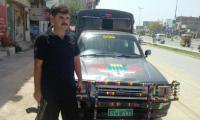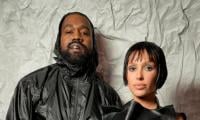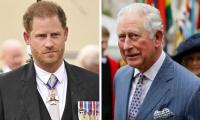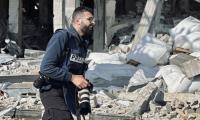LAHORE: Turkey is bracing for snap presidential and parliamentary elections in less than a week on June 24 under a state of emergency, more than 16 months ahead of the original schedule of November 3, 2019, to elect 550 parliamentarians to the country's Grand National Assembly for a four-year term (five years before the 2007 referendum) by a system based on closed list proportional representation.
Basically, sitting Turkish President Recep Tayyip Erdogan is seeking another five-year term amid a crackdown on dissent following the 2016 failed coup. The state of emergency has been in place throughout Turkey since July 2016 after about 300 people were killed during a failed coup attempt.
Although Turkey's election campaigns are marred by violence, voters will choose a parliament as well as a president on coming Sunday, and polls suggest both elections will be closer than expected. Around 55 million people have registered to vote in Turkey, along with three million overseas. Turkey blames the movement of Fethullah Gulen, a US-based self-exiled religious leader, for the attempted putsch.
According to a "European Commission" report, more than 150,000 people had been taken into custody during the state of emergency, some 78,000 were handcuffed and more than 110,000 civil servants dismissed after being accused of supporting the coup bid. Turkish authorities, on the other hand, claim about 40,000 civil servants have been reinstated.
According to "Al-Jazeera," a state-funded broadcaster in Doha with 80 bureaus around the world, the Turkish government says the movement's members have been running "a parallel state" within the civilian and military bureaucracy and following their own agenda. Gulen denies the claims though.
The presidential polls will be held to elect the Turkish president using a two-round system. While the first round will take place on June 24, a second round (if no presidential candidate gains 51 percent) is due to occur two weeks later on July 8.
At least 21 opposition supporters were injured in attacks from April 30 through June 5, according to a report by the Human Rights Association, a Turkish NGO. The victims include four supporters of the Good Party who were stabbed last month at a campaign booth by members of a rival opposition party.
The official list of presidential candidates in order of appearance on the ballot paper is as follows: Muharrem Ince of Nation Alliance (CHP), Meral Aksener of Nation Alliance (IYI Party), Recap Tayyip Erdogan of People's Alliance (ruling Justice and Development Party or the AKP), Selahattin Demirtas (Peoples’ Democratic Party or HDP), Temel Karamollaoglu (Saadet Party –Nation Alliance) and Dogu Perincek (Vatan Party).
It is imperative to note that one of the presidential candidates, Selahattin Demirtas, a former human rights lawyer, is behind bars fighting terrorism-related charges. Demirtas is the former co-chairman of the HDP and one of the country's best-known politicians.
The "NBC News" reports: "He faces a 142-year sentence if convicted. Demirtas, who denies the accusations, was allowed to run in the presidential race because he has yet to be convicted. It wasn't clear, however, if or how he would be able to take up office in the unlikely event that he is elected. Muharrem Ince, a 54-year-old former physics teacher, is seen as the top contender to Erdogan in the race to be president. However, his CHP has struggled to win support beyond its core base of secular-minded voters. In the last parliamentary election in November 2015, it took 25.3 per cent of the vote."
The "Human Rights Watch," a New York-based international non-governmental organisation that conducts research and advocacy on human rights since 1978, said the forthcoming Turkish polls would bring in a new presidential system whatever the outcome. This new system was marginally ratified by voters in an April 2017 referendum. It will greatly increase the powers of the president and reduce the role of Turkey’s parliament.
Hugh Williamson, Europe and Central Asia Director at Human Rights Watch which was operating with annual expenses to the tune of $69.2 million in 2014, said: "The right to elect their chosen candidates and parties in a credible, fair, and democratic process is key to protecting the human rights of all voters, and that requires a fair campaign in which all parties and candidates have a reasonable opportunity to present their ideas to the electorate."
While Erdogan and the ruling Justice and Development Party (AKP) are seeking to renew their electoral mandate, the opposition party stalwarts are vying for both the presidency and the parliament, but in a very hostile and difficult climate.
It is imperative to note that in the last parliamentary elections in 2015, Erdogan's Justice and Development Party had won a comfortable majority of 317 seats in the 550-seat parliament by securing 49.5 per cent of the votes. Erdogan had also won the 2014 presidential election by claiming 51.79 per cent of the vote in the first round.
The Al-Jazeera, whose closure was demanded in June 2017 by the Saudi, Emirati, Bahraini, and Egyptian governments as one of 13 demands made to Qatar during the 2017 Qatar crisis, maintains: "The June 24 elections are being held against a backdrop of an ongoing state of emergency and a declining currency, as well as shifting international alliances and increasing involvement in Syria. Turkey has been working with Iran and Russia to end the seven-year Syrian war, while its cooperation with Moscow has expanded in multiple areas ranging from energy to defence."
The Qatari media outlet has more to say: "There have also been economic concerns rippling through the country. Since the beginning of 2018, the Turkish lira has depreciated more than 20 per cent against the US dollar, hitting a low of 4.93 against the greenback. Erdogan, who has been in power for more than 15 years, either as prime minister or president, has led Turkey’s economic transition to an emerging market. In 2001, a year before he became prime minister, Turkey's inflation rate was an abysmal 69 per cent. Last year, it stood at 12 per cent. Yet, financial concerns remain."
The media house, launched on November 1, 1996 following the closure of the BBC's Arabic language television station, further reports: "The ruling AK Party and MHP will enter the parliamentary election as a bloc - with support from the smaller Great Unity Party (BBP) - called the People's Alliance. Erdogan will be their joint candidate for the presidential vote. Meanwhile, main opposition Republican People’s Party (CHP), IYI Party, conservative Felicity Party (SP) and centre-right Democratic Party (DP) formed their own alliance despite their poles-apart backgrounds and ideologies."
Meanwhile, the Human Rights Watch, which shared the 1997 Nobel Prize as a founding member of a coalition of NGOs called the "International Campaign to Ban Landmines”, states: "The government has placed unprecedented restrictions on independent media over the past two years and has near total control over television news after the recent takeover of private television channels by a government-loyal holding company, and there is evidence that opposition parties receive much less airtime on broadcast media. The opposition Peoples’ Democratic Party (HDP) faces the most obstacles, with its presidential candidate and several members of parliament competing in the elections from prison, facing politically motivated criminal charges. Turkey has increased restrictions on the media, political opposition, and human rights defenders during 2017, on the back of a very narrow referendum. The country also introduced a presidential system with insufficient democratic checks and balances against the president’s abuse of power."
In its recently-released 643-page World Report, its 28th edition, the Human Rights Watch has reviewed human rights practices in more than 90 countries, including Turkey. It asserts in its report on Turkey: "The government exerted enormous pressure over Turkey’s courts and prosecutors. Legitimate efforts to prosecute those responsible for the 2016 coup attempt were undermined by widespread misuse of counterterrorism laws. Several major politically motivated trials of journalists on terrorism-related charges began in 2017, and the government also targeted human rights defenders."
The report adds: "The government deepened its assault during 2017 on the Kurdish political opposition in parliament, and on local government in the south-eastern part of the country. Members of the Peoples’ Democratic Party (HDP), including party leader, Selahattin Demirtas, remain jailed for over a year, pending trial on terrorism charges. The government has taken over almost all municipalities in the southeast, depriving people in the region of their chosen representatives. Under the state of emergency, the government has failed to provide redress for the over 100,000 civil servants dismissed, as well as hundreds of media outlets, associations, and other institutions closed down."
Brief spotlight on Turkish economy and social indicators: Turkey has the world's 17th largest Nominal GDP ($909.885 billion) and the 13th largest GDP ($2.320 trillion by Purchasing Power Parity. It is among the world's leading producers of agricultural products; textiles; motor vehicles, ships and other transportation equipment; construction materials; consumer electronics and home appliances. (Reference: IMF World Economic Outlook Database dated April 29, 2018)
It is world's 11th largest exporting country with exports of $157.1 billion and happens to be the 12th largest importer with imports of $234.2 billion. With revenues in excess of $225 billion against expenses of $234 billion, Turkey's Public Debt rests at 26.5 per cent of its GDP, its Foreign Direct Investment (FDI) stock stands at $198.4 billion. (Reference: The 2017 European Commission Report and the CIA World Fact Book)
A few years ago, its Foreign Exchange Reserves were more than $135.638 billion, while in 2014, 12 Turkish companies were listed in the Forbes Global 2000 List – an annual ranking of the top 2000 public companies in the world by the esteemed Forbes Magazine. (References: Turkish Central Bank Report and Forbes' 2014 List of World's Biggest Public Companies)
In 2013, the number of telephone subscribers in Turkey was 13.86 million, while there were 68.9 million registered mobile phones in the country. (Reference: The Turkish Information and Communication Technologies Authority)
By 2017, the Internet usage had surged to 66.8 per cent in Turkey. While the share of internet usage among men was 75.1 per cent, the share was 58.7 per cent among females in 2017. (Reference: The Turkish Statistical Institute survey of August 2017)
As of 2017, there were 56 million internet users in Turkey, which ranked 35th in the world, according to the Organization for Economic Co-Operation and Development (OECD) report of 2017.
Turkey's defence spending had stood at 29.4 billion Turkish Liras, equivalent to $13.2 billion by November 2014. (Reference: The November 8, 2014 statement of former Turkish defence minister Ismet Yilmaz)
JUI-F filed a petition through advocate Kamran Murtaza
New data from 187 countries shows that the estimated number of deaths from viral hepatitis increased from 1.1 million...
APTMA also drew the attention of the finance minister toward high taxes and persistent delays in refunds have squeezed...
The guard appeared at the Westminster Magistrates Court on Wednesday afternoon with his lawyer Moeen Khan
Ogra determines the natural gas tariff for domestic sector consumers and LNG price separately for power sector
The chief minister directed prompt completion of the Lahore Ring Road SL-3 project and urged immediate action







